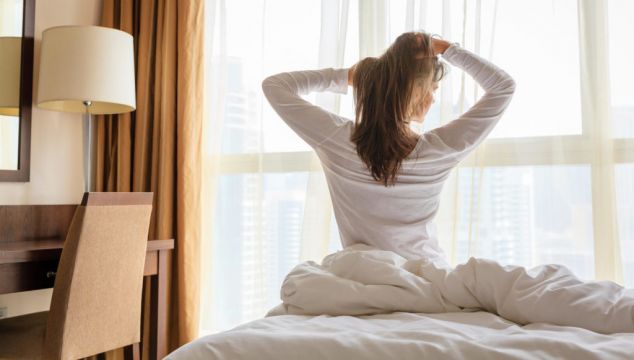People who are most active and alert in the evening could actually be sharper than boastful early birds, who enjoy the thrill of a 6am alarm.
Researchers from Imperial College London analysed results from a UK Biobank study of 27,000 people’s sleeping habits. In cognitive tests that examined intelligence, reasoning skills, reaction times and memory, they found those who got between seven and nine hours of sleep each night performed best.
But further than that, they also reported that night owls had “superior cognitive function”.
“Our study found that adults who are naturally more active in the evening – what we called ‘eveningness’ – tended to perform better on cognitive tests than those who are ‘morning people’,” the study’s lead author, Dr Raha West, from the Department of Surgery and Cancer at Imperial College London, said.
But, how can you tell if you’re really a night owl? And how can you be productive in the evening and still get enough sleep?
How do I know if I’m a night owl or an early bird?

Do you relish the dim evening light, or feel revitalised by waking with sunrise? If you are unsure whether you fall into the early bird or night owl category, there is a test you can take.
“It can be really useful to consider when you favour sleeping,” says Jamie Clark, senior physiologist at Nuffield Health. “Essentially, what time do you think your body would want to go to sleep and wake up?
“This is known as your chronotype. Knowing whether your morning type, evening type, or somewhere in between can help you to take a control of your sleep schedule, and maximise your productivity,” explains Clark. “You can take the Chronotype Morningness-Eveningness Questionnaire to help determine where you place your single-bout sleep opportunity.”

Whichever category you fall into, getting your optimal eight hours of sleep a night is still important for both cognitive function and general health.
“The quality and quantity of your sleep is directly linked to how you feel during the day and affects both your physical and mental health, which can hugely impact your day-to-day life – including your job and social life,” says Sammy Margo, sleep expert at Dreams.
“Sleep is important for everything from regulating your hormones which control your appetite, growth and healing, to boosting productivity and creativity. Without quality sleep, we may see a decrease in reaction time, concentration, and focus.”
How can I maximise my productivity and my sleep as a night owl?
So, even if you are a night owl, safeguarding your sleep is still vital. here are some tips of how you can channel your evening energy and still get enough quality slumber…
1. Create a dedicated workspace

“If possible, separate your work area from where you would normally relax – and certainly don’t do your work in bed,” says Alison Jones, sleep expert at Sealy UK.
2. Limit distractions
“Turn off notifications on your phone or put your phone in another room to help keep you on track of the tasks at hand,” recommends Grace Carson, health and wellbeing physiologist at Nuffield Health.
3. Make a realistic to-do list
Ticking tasks off a to-do list is incredibly satisfying and productive – but overloading yourself before bedtime could backfire.
“We often have a tendency to be overly ambitious with what we hope to achieve in our day,” says Carson. “Setting a to-do list can help keep you track your progress and manage expectations.”
4. Set a time limit
“If you have lots of tasks to do in the evening, allocate specific time blocks for each task and stick to them,” advises Margo. “I love using a timer to help keep track of my time spent on tasks at home.”
5. Don’t forget to take breaks
Just because it’s dark outside, doesn’t mean you don’t need desk breaks. “Include short breaks and relaxation techniques to avoid burnout and reduce stress before bed,” suggests Jones.
6. Factor in time to unwind
It might be past many people’s bedtime when you finish work, but giving yourself some time to relax and unwind before trying to doze off is still helpful.

“Allocate around 45 minutes before bed for calming activities like reading, meditation or gentle stretching, or whatever makes you feel good and relaxed before you sleep,” recommends Margo. “This will help ensure you get a good quality night’s sleep and feel productive during the day.
Dr Hana Patel, NHS doctor and Time4Sleep’s resident sleep expert, adds: “Relaxation techniques such as a hot bath or shower, stretching, yoga, progressive muscle relaxation and deep breathing may also help to relieve anxiety, reduce muscle tension, and allow you to fall asleep more easily.”
Chronic stress can have lasting effects on your health and well-being. Creating a healthy routine – including getting enough sleep -- and sticking to it can help your body and your brain deal with stress. #HealthyHabits pic.twitter.com/aLHRwKdmOm
— American Heart Association (@American_Heart) April 22, 2024







